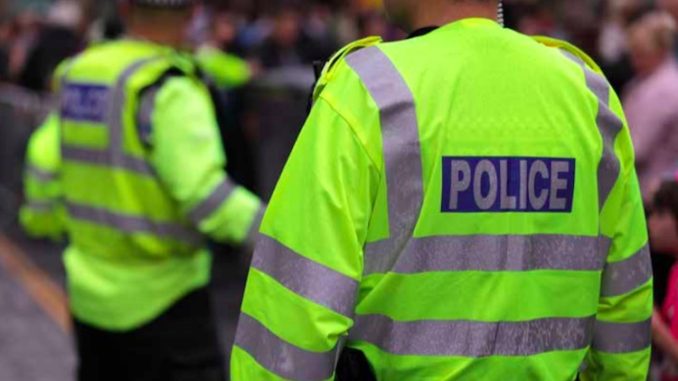
The nature of terrorism has changed, and is continuing to do so. Despite this, writes Dr John Battersby of Massey University’s Centre for Defence and Security Studies, New Zealand relies on terrorist legislation that is no longer fit for purpose.
Over the last two decades the nature of terrorism has changed from a predominantly sectarian and nationalist orientation confined within the borders of affected states, to a phenomenon globalised by jihadist movements directing or inspiring violence across continents.
Funds, recruitment paraphernalia and propaganda oscillates through borderless cyberspace and people congregate in terrorism’s hot zones by staged travel through different countries. Since 2014 their final destinations have been Iraq, Syria, Somalia and Yemen. As ISIS influence shrinks in those countries, however, other unstable locations such as the Philippines may become the focus of jihadists who seem set to continue to be a major focus of future terrorism.
But the nature of the terrorism they have inspired may not remain confined to them. It is entirely possible that previously inward looking, nationally defined white supremacist groups could seek greater connectivity with each other and express themselves globally. Late twentieth century cults such as Branch Davidians and Aum Shinrikyo – whose hostility to the world outside them was previously confined geographically – may not be so in the future.
New Zealand’s legislative architecture in face of globalised terrorism remains fundamentally out of step. The International Terrorism (Emergency Powers) Act 1987 was a belated attempt to legislate against activity that had led to the French attack on the Rainbow Warrior two years before.
The smuggling of explosives, use of false passports, and planning to sabotage the vessel was illegal – but when brought together to form a conspiracy to commit violence to subvert the right to protest – it became something altogether more sinister. The prosecution of two agents for manslaughter underscored the weakness of normal criminal codes being applied to this type of activity.
Enjoying this article? Consider a subscription to the print edition of Line of Defence.
The 1987 Act is still on the statute books, it applies narrowly to international terrorism occurring in New Zealand. The Act contains some little-known emergency powers which have never been used, and unless there is an event very similar to the Rainbow Warrior bombing, probably never will be.
The Suppression of Terrorism Act (STA) in 2002 came in the wake of 9/11 but more specifically in response to the United Nations Security Council Resolutions 1368 and 1373 which followed. New Zealand was a reluctant legislator even then, drafting a law with a torturously complicated definition of terrorism.
The STA has been evoked only once in 2007, but when it came to laying charges against those arrested for allegedly threatening assassinations and undertaking tactical training using small arms and Molotov cocktails – it was found to be impossible to do so. The Solicitor General pronounced the STA as “incoherent and unworkable” and it has never been used since. There would be few other countries that would not legally consider this type of activity as terrorism.
Recent examples of New Zealand individuals possessing and distributing violent jihadist hard copy and video material have been dealt with using the Films, Videos, and Publications Classification Act 1993, legislation not actually designed for material promoting terrorism. So far this appears to have sufficiently contained the few individuals who have been prosecuted, but the viability of this avenue may be stretched if greater numbers become involved or the advocacy of violence becomes more widespread.
New Zealand’s Muslim community is broadly determined to maintain a tolerant and non-violent position in New Zealand society – its trust in New Zealand’s law enforcement and intelligence agencies to effectively deal with those few who emerge to promote extremism will be eroded if, in fact, we cannot react to anything less than actual violence or the chance of some breach of other criminal legislation.
In 2014, the Countering Terrorist Fighters Legislation Bill was passed, amending a number of Acts allowing for 24-hour period of surveillance without warrant of those suspected of intentions to travel to fight with jihadist groups, and allowing for the cancellation for passports of those suspected of plans to do so. This legislation contained a sunset clause however; by 1 April 2018 the effect of all temporary amendments would have lapsed.
Critically, the Bill also failed to define a ‘foreign fighter’. The cancellation of passports by Ministerial order has not yet been challenged in Court, but if no one knows legally what a ‘foreign fighter’ is, it is probably only a matter of time before a legal challenge is launched.
With foreign fighters leaving Syria and Iraq, fears have arisen internationally that these fighters may seek to return to their home countries. In most cases they will be arrested if they do, but any of the dozen or so New Zealanders thought to be among foreign fighters cannot be. There is no legislation here that proscribes their activity alongside terrorists in overseas conflict zones as illegal.
Adding to this risk is the Australian policy of deporting ex-pats including Zealanders with criminal convictions – this will include any New Zealander convicted in Australia of terrorism offences.
Terrorism is a tactic open to use by anyone – jihadists have the media limelight at the moment, but white supremacists may copy their tactics – and indeed lone actor attacks on the Finsbury Mosque and Charlottesville would indicate they already have. New Zealand has no legislative vision about how it could deal with a rise in this type of violence.
In Central and South America, criminal gangs incarcerated alongside political prisoners resulted in a politicisation of those gangs especially among the favelas of Brazil. With the spread of transnational crime into Pacific Island countries, it is not a far flung possibility that criminal groups expand their horizons to include violence and intimidation for political purposes or to adopt the tactics of terrorists for their more limited criminal ends.
Facilitating information sharing and cooperative legal frameworks to allow for multi-agency and multi state enforcement will be demanded in the future. This is a tall order for New Zealand as it shrinks from the challenges of terrorism in a new century, resorting to terrorist legislation largely designed in the century just gone, with only minor amendments making an unconvincing claim to currency.





